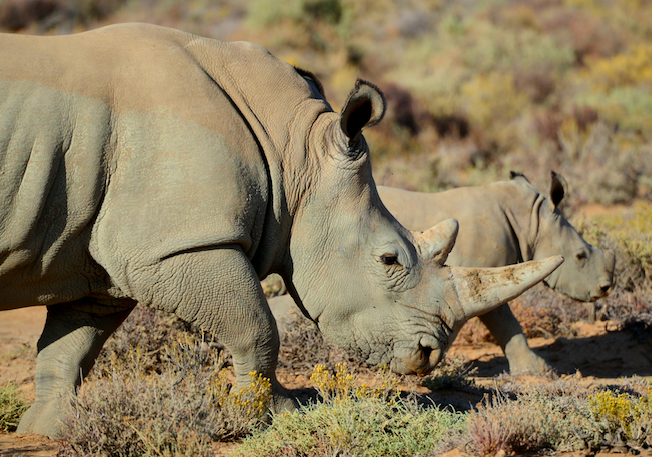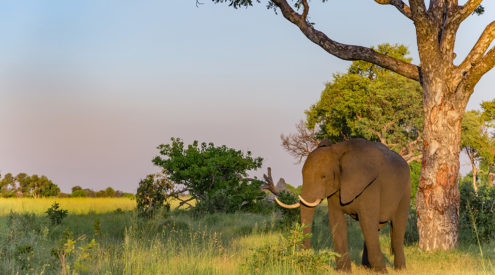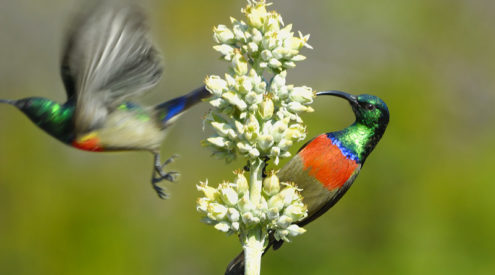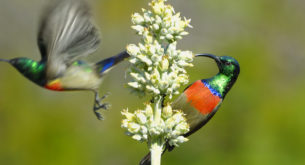Well-known North West rhino breeder and farmer John Hume has announced his proposal to annually rewild approximately 100 southern white rhinoceros to their natural habitat in southern Africa. This forms part of a private conservation initiative that hopes to reduce the pressure on shrinking rhino populations.

Platinum Rhino, Hume’s organisation run from his farm Buffalo Dream Ranch, is home to some 2 000 rhinos. Since the start of his venture 30 years ago, 1 800 calves have been born on the farm. Now, the team is calling for potential partners to take hands with them on this project. ‘We are looking to collaborate with all stakeholders, the government (SANParks), NGOs and organisations that are conservation-minded and can make meaningful contributions to secure the future of the project,’ the team says.
‘Rhino poaching figures in South Africa remain high. In February this year, the Department of Forestry, Fisheries and the Environment released poaching figures for 2021. SANParks lost 209 rhinos to poaching in 2021, while 124 rhinos were poached from private reserves in the same period,’ Platinum Rhino’s statement reads, citing Save the Rhino.
‘Earlier this week, conservation authorities in KwaZulu-Natal announced that 106 rhinos have been poached in the province’s parks and reserves since January 2022. In 2021, KZN lost 102 rhinos to poaching, and 93 in 2020.’
‘We recently celebrated five years and two months without losing a single rhino to poaching,’ says John. ‘To prevent the rhino from going extinct, you must breed better, and you must protect better,’ he says. ‘You need to be able to do both.’
From a breeding management perspective, the original animals of the breeding programme were introduced from 95 different locations spread throughout South Africa. They were distributed across several of the project’s breeding populations to create genetic diversity. The offspring produced are relocated to other breeding populations to prevent inbreeding and promote further genetic diversification.
The security measures on the farm comprise radar and virtual fences, boots on the ground, and helicopter surveillance, explains Brandon Jones, the project’s security manager. ‘Our rhinos are under constant 24-hour visual watch. We know where all the rhinos are all of the time,’ he says.
Rhino horn trimming, under the guidance of veterinarian Dr Michelle Otto, forms part of the project’s security measures and the rhinos released from the farm will also be de-horned for their safety. Hume has previously made headlines, however for his controversial campaign to decriminalise the rhino horn trade, saying the trade will reduce deaths resulting from poaching and that profits can be used towards conservation efforts.
The project team invites interested parties to ‘take the project into the next phase of rewilding’ and partner with them to extend the range of Hume’s rhinos and expand the population. ‘The threat to rhinos is not waning. We will lose them all unless we do something different,’ concludes Hume.
Picture: Getaway gallery
ALSO READ















